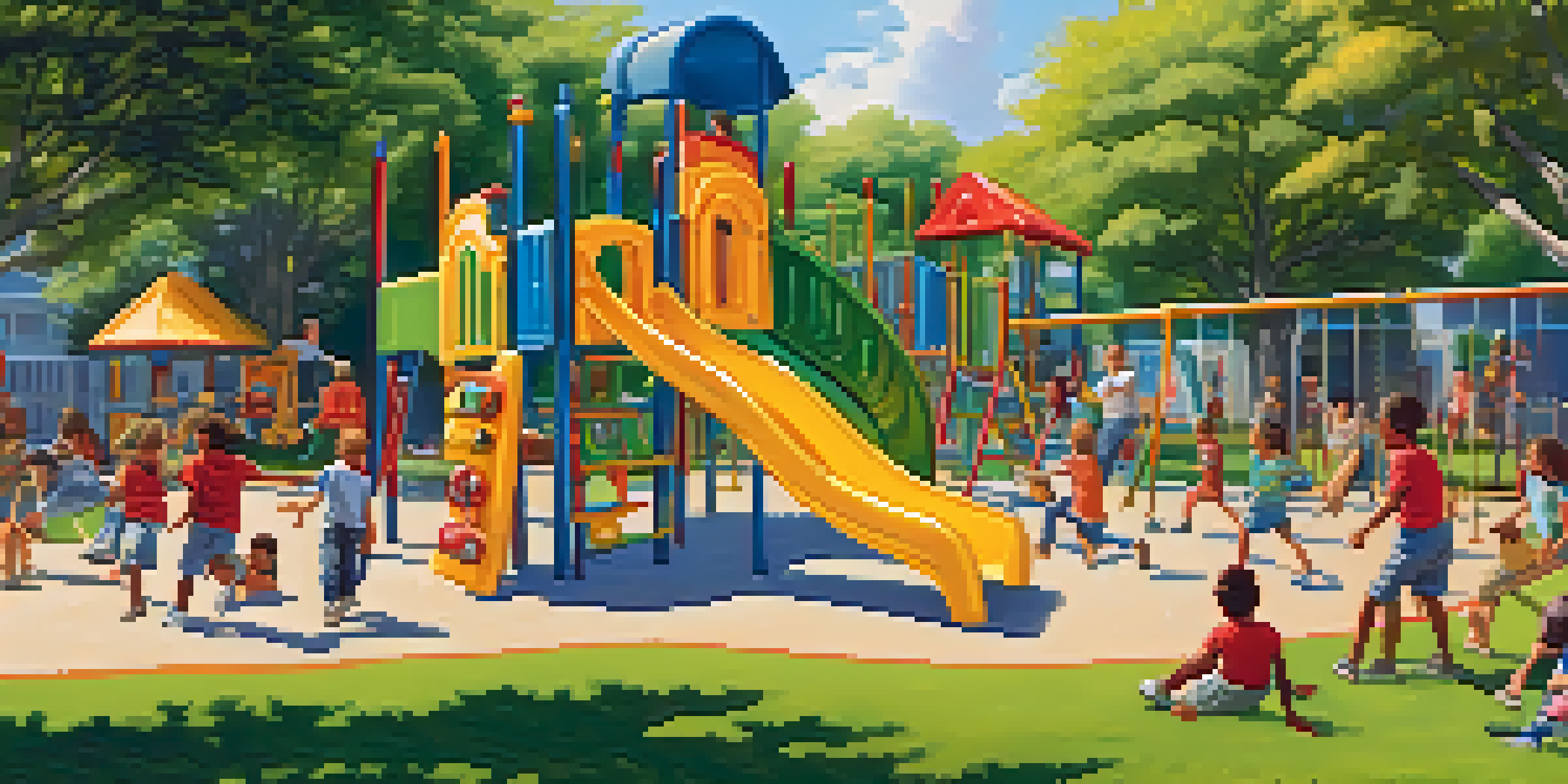The Link Between Play and Executive Function Skills in Children

Understanding Executive Function Skills in Children
Executive function skills are essential cognitive processes that help children manage their emotions, thoughts, and actions. These skills include working memory, cognitive flexibility, and inhibitory control. Essentially, they allow kids to plan, focus attention, remember instructions, and juggle multiple tasks successfully. Without these skills, children may struggle with academic tasks and social interactions.
Play is the highest form of research.
Think of executive function as the brain's command center, directing how children approach various challenges. For instance, when a child is asked to solve a math problem while ignoring distractions, they rely heavily on these skills. As children grow, developing strong executive function abilities becomes crucial for navigating both school and everyday life.
Research shows that executive function skills are not fixed; they can be developed over time. This is where play comes into the picture, acting as a dynamic environment for children to practice and enhance these skills. Engaging in play can provide a fun and interactive way to build critical cognitive abilities.
The Role of Play in Child Development
Play is often viewed as a simple pastime, but it's actually a vital aspect of child development. It enables children to explore their environment, experiment with new ideas, and develop social skills. Through play, children learn to negotiate, cooperate, and resolve conflicts, which are all key components of executive function.

For example, when children engage in role-playing games, they must remember rules, take turns, and adapt to changing scenarios—all exercises that strengthen executive function skills. This kind of play not only fosters creativity but also encourages problem-solving and critical thinking.
Executive Function Skills Explained
Executive function skills are crucial cognitive abilities that help children manage emotions, thoughts, and actions.
Moreover, play is a natural stress reliever for kids, allowing them to express emotions and build resilience. By creating a safe space for exploration and learning, play serves as an essential foundation for developing strong executive function skills.
Types of Play That Boost Executive Function Skills
Different types of play can enhance various executive function skills. For example, structured play, such as board games and puzzles, requires planning and strategy, engaging working memory and cognitive flexibility. These activities often involve rules that kids must remember and apply, making them excellent for skill development.
Children learn as they play. Most importantly, in play, children learn how to learn.
On the other hand, unstructured play, like free play in a playground, allows children to use their imagination and creativity. This type of play encourages them to navigate social dynamics, enhancing their inhibitory control and decision-making skills. As kids invent games, they learn to set their own goals and assess the outcomes of their choices.
Both types of play contribute to a well-rounded skill set, reinforcing the idea that a mix of structured and unstructured play is essential for developing executive function capabilities.
The Connection Between Social Play and Self-Regulation
Social play is a critical component of childhood that significantly impacts self-regulation, an essential aspect of executive function. When children engage in play with their peers, they learn to manage their impulses and emotions. This interaction fosters an understanding of social cues and the importance of waiting for their turn, which enhances inhibitory control.
For instance, during a game of tag, children must navigate their desire to chase while respecting the rules of the game. This balance between impulse and rule-following is a practical exercise in self-regulation. As they learn to control their reactions, they develop the ability to think before acting, a key aspect of executive function.
Play Enhances Cognitive Development
Both structured and unstructured play are essential for developing executive function skills through creativity and problem-solving.
Overall, social play not only strengthens relationships but also builds a foundation for emotional intelligence, which is closely linked to executive function skills. Through these interactions, children become more adept at managing their own behavior and understanding the perspectives of others.
How Parents Can Foster Play for Skill Development
Parents play a pivotal role in fostering environments that encourage play and, consequently, the development of executive function skills. Providing a variety of play opportunities—both structured and unstructured—can help children explore and enhance their cognitive abilities. For example, parents can introduce board games that require planning and strategy or create spaces for imaginative play.
Encouraging outdoor activities is also beneficial, as physical play promotes not only executive function but also physical health. Activities like climbing, jumping, or playing sports challenge kids to think on their feet and make quick decisions, further developing their cognitive flexibility.
Lastly, allowing children to take the lead during playtime fosters independence and decision-making skills. By stepping back and letting them navigate their play experiences, parents empower their kids to practice self-regulation and critical thinking in real-time.
The Impact of Digital Play on Executive Function Skills
In today's digital age, technology plays an increasingly significant role in children's play. While there are concerns about screen time, certain digital games can also promote executive function skills. Many video games require players to strategize, solve problems, and manage resources, which can translate to improved cognitive abilities.
However, it’s essential to strike a balance between digital and physical play. Excessive screen time can lead to a sedentary lifestyle and reduced social interactions, which are critical for developing executive function skills. Parents should guide children in selecting games that are both engaging and educational.
Parental Role in Skill Development
Parents can foster environments that encourage play, which is vital for enhancing children's executive function skills.
By encouraging a mix of digital and traditional play, families can create a well-rounded approach that supports the development of executive function skills while still embracing the benefits of technology.
Conclusion: The Power of Play in Child Development
In conclusion, the link between play and executive function skills in children is both profound and essential. Play serves as a natural laboratory for kids to practice and refine their cognitive abilities, from problem-solving to self-regulation. By understanding the importance of various play types and their impact on development, parents, educators, and caregivers can create enriching environments that foster these skills.
Encouraging a balance of structured and unstructured play, alongside social interactions, can lead to enhanced executive function skills that benefit children throughout their lives. As kids navigate the world through play, they build resilience, creativity, and critical thinking—skills that are invaluable in adulthood.

Ultimately, prioritizing play as a fundamental aspect of child development not only supports cognitive growth but also nurtures happy, well-rounded individuals ready to tackle life's challenges.